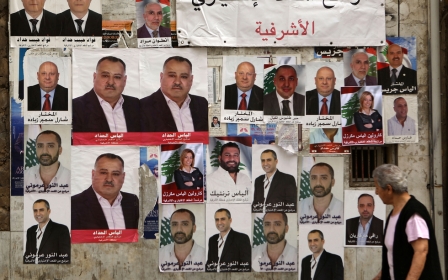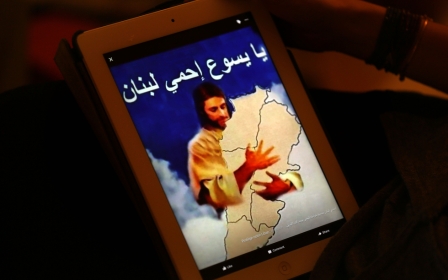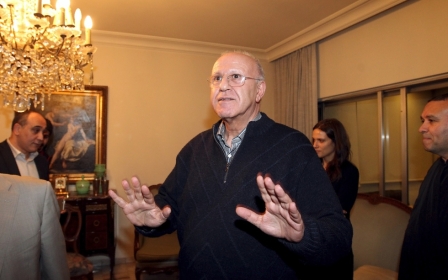Lebanon’s municipal elections offer first hope of political renewal

On Sunday Lebanon witnessed its first round of elections in four years with the holding of municipal elections. They were a landmark event because this was the first time a technocratic list of independent candidates not belonging to any political party (called the “Beirut Madinati” or Beirut My City list) contested the municipal elections in the governorate of Beirut in an attempt to challenge the status quo.
Beirut Madinati did not win a single seat, and the prevailing list in Beirut was called the “Beirutis” representing the dominant political parties in Lebanon. What is notable about the “Beirutis” list is that it brought together candidates from Lebanon’s two main political camps - March 8 and March 14 - that hitherto had been arch rivals in elections.
Politics in Lebanon has been frozen for years, which gave municipal elections - in the past given little importance in Lebanon - a newfound importance, as they were people’s only chance to exercise their voting rights in current conditions.
Parliamentary elections have not been held in Lebanon since 2009 because of the political stalemate between March 8 and March 14. The stalemate is the product of the two camps’ polarised positions that became more entrenched as a result of the Syrian conflict and has led to the indefinite postponement of parliamentary as well as presidential elections.
Status quo victory
The abysmal turnout of 20 percent and the victory of the “Beirutis” over “Beirut Madinati” underlines the stagnation of politics in Lebanon and represents the entrenchment of the status quo.
Lebanon’s political architecture has absorbed the country’s feudal history and created a sectarian-based system of political representation that has resulted in the leaders of sects being seen as natural political representatives who aim to secure the interests of the members of their sects above the national interest.
The wider result of this, whether in parliamentary or municipal elections, is that the candidates representing the different political parties generally do not offer voters electoral platforms to incentivise people to vote for them. It is enough for those candidates to be on the official electoral list of a particular party for the loyal followers of that party to vote for them.
In the last municipal elections of 2012, coming a year after the start of the Syrian conflict, the two political camps ran rival lists across Lebanon. There were "consensus lists" with candidates from both political camps only in a handful of small villages. In Beirut, the capital and therefore the most important governorate, the rivalry between March 8 and March 14 lists was at its most acute, with the March 14 list winning most seats.
This political polarisation between political parties belonging to the March 8 and March 14 camps continued until last summer, when Lebanon witnessed a corruption-driven crisis over the collection of refuse. Many of the country’s streets, forests and beaches became impromptu rubbish dumps.
The crisis sparked a mainly youth-led anti-corruption protest movement on which the Lebanese government cracked down, often with brutal force. But the protest movement was also plagued by lack of organisation and coordination and internal tensions among its diverse members that resulted in its splintering into different groups. This contributed to its rapid decline.
Beyond the rubbish crisis
The “Beirut Madinati” list came in the wake of the protest movement (protests are ongoing but on a very small scale), with many of its candidates having taken part in the rubbish crisis protests. They hoped that the rubbish crisis would have underlined the importance of municipalities. With no solution to the crisis offered by the central government, a number of municipalities have taken the initiative to find local solutions to refuse collection and processing.
All those factors - the lack of parliamentary elections, the failure of street politics to drive change, and the rubbish crisis - increased the attention given to the municipal elections. But what is most notable is the attitude of the political elites belonging to March 8 and March 14. The crackdown on the protest movement by the government was a concerted and coordinated effort by both camps as they saw the protest movement as a potential threat to the political status quo and temporarily brushed aside their differences to crush it.
With the emergence of Beirut Madinati, March 8 and March 14 once more chose to overcome their differences and created the “Beirutis” as a joint list of candidates in the governorate of Beirut.
Although Beirut Madinati presented the most sophisticated electoral platform among all the lists running in Beirut, this did not spur the “Beirutis” list to follow suit. The “Beirutis” counted on their loyal followers to continue the tradition of voting on the basis of clientelism. With a prominent figure in the protest movement, former minister Charbel Nahhas, forming his own distinct electoral list, Beirut Madinati also faced some of the same challenges that the protest movement faced in terms of rivalry from those who are supposed to hold the same views and objectives. But the overwhelming number of voters in Beirut voted for the “Beirutis”.
One might argue that the failure of the protest movement gave people little faith in the ability of the new generation to effect change and this hurt Beirut Madinat’s prospects, or that the lack of political experience among its candidates did not inspire voter confidence. But as the rubbish crisis is widely attributed to the corruption of Lebanon’s ruling elites, it is more likely that the government’s crackdown on the protest movement sustained the sense of apathy among Lebanese citizens and the futility of the political process, especially in Beirut, the heart of the protest movement. Here turnout was only just above 20 percent.
Although Beirut Madinati did not win on Sunday, it remains the first time that such an initiative has been undertaken in Lebanon, and the political elites were worried about it enough to unite against it. In a country where political stagnation and apathy prevail, developments like Beirut Madinati show how limited the appetite for political change is in the country, but are also important milestones in the transformation of activism to challenge the status quo.
- Lina Khatib is the Head of the Middle East/North Africa Programme at Chatham House. You can follow her on Twitter @LinaKhatibUK
- Bassem Deaibess is a social, women’s rights and environmental activist in Lebanon.
The views expressed in this article belong to the author and do not necessarily reflect the editorial policy of Middle East Eye.
Photo: A Lebanese woman shows her ink-stained thumb after casting her vote for the municipal elections at a polling station on 8 May, 2016 in the capital Beirut (AFP).
New MEE newsletter: Jerusalem Dispatch
Sign up to get the latest insights and analysis on Israel-Palestine, alongside Turkey Unpacked and other MEE newsletters
Middle East Eye delivers independent and unrivalled coverage and analysis of the Middle East, North Africa and beyond. To learn more about republishing this content and the associated fees, please fill out this form. More about MEE can be found here.




